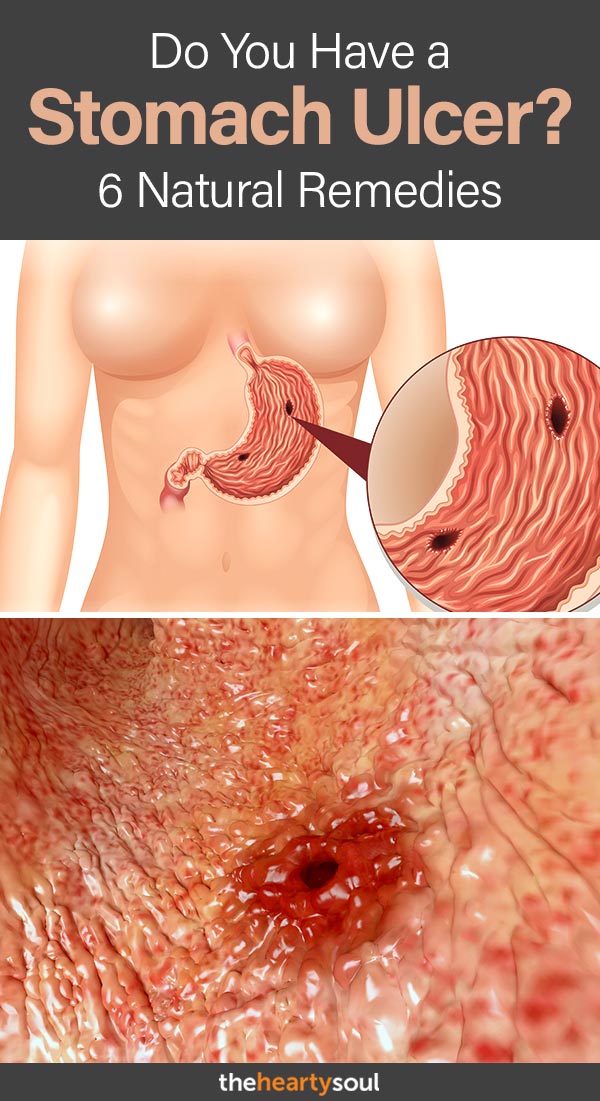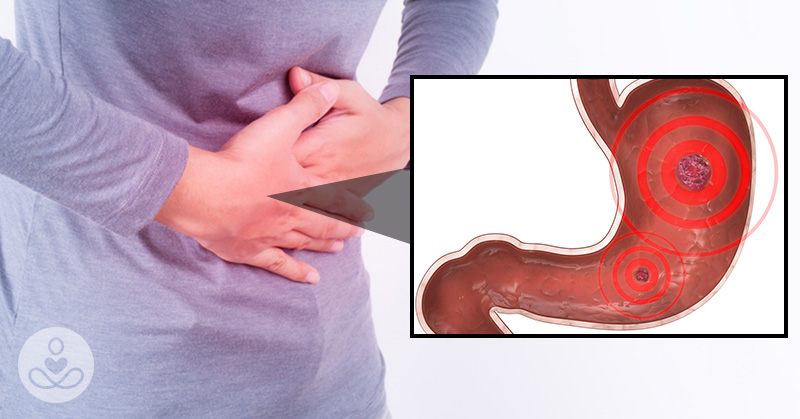Your stomach uses one of the most powerful naturally occurring acids to break down everything you eat. Stomach acid is even strong enough to completely dissolve a razor blade! Thankfully, we don’t actually feel any of that incredible acid working away in our bodies… but what happens if we do?
What Are Stomach Ulcers?
Stomach ulcers are sores, or acid burns, that form in your stomach lining. When you’re healthy, there is a thick layer of mucous that lines the inner walls of your stomach, protecting it from the strong acids inside which break down food during digestion. But if a stomach ulcer develops, that mucous lining gets weaker and weaker, until the walls of the stomach itself become damaged.

Stomach Ulcer Symptoms
- Stomach ulcers are best characterized by the burning stomach pain they bring at night or a few hours after eating.
- If you find you’re constantly waking up in the middle of the night with stomach pains (they can happen anywhere from your belly button to just below your throat), it might be a sign of a stomach ulcer.
- The same goes if you’re experiencing discomfort and pain a couple hours after every meal. If you’re eating 3 meals a day, it might actually seem like the pain is happening 1 or 2 hours before your next meal.
There are also signs that your stomach ulcer has become very serious. These include:
- dark, tar-like stool
- sudden very sharp abdominal pain
- vomiting blood
If you experience any of these symptoms, seek medical attention immediately. It’s important to take these signs very seriously, since some stomach ulcers can go unnoticed until they’re life-threatening.
What Causes Stomach Ulcers?
Your lifestyle impacts your digestion. Studies have found that there are 3 major things that can influence your stomach acid production and lead to painful, or even life-threatening stomach ulcers. Up to 95% of stomach ulcer cases can be attributed to these 3 factors:
- NSAIDs (like Advil or aspirin) In one study, 80% of ulcer-related deaths occurred with people taking NSAIDs
- H. Pylori bacteria (the cause of 70% of stomach ulcers)
- Smoking. Regular smokers are 41% more likely to develop stomach ulcers than non-smokers.
Natural Remedies for Ulcers
Thankfully there are many things you can easily do at home to treat stomach ulcers without the use of medication. We’ve put together a helpful list of Do’s and Don’ts if you or someone in your family develops a painful stomach ulcer.
Here’s what NOT to do…
- Get stressed. Instead, Manage your anxiety and stress with yoga and meditation.
- Feed your coffee addiction and your sweet tooth. Instead, avoid caffeine, processed foods, spicy foods, and a high sugar diet, since all of these can make your symptoms feel much worse.
- Drink or smoke. Stop drinking alcohol and smoking altogether while your stomach heals, to speed up your recovery, and to prevent another ulcer from developing.
Here’s what you SHOULD do…
- Drink raw cabbage juice . Scientists have found that treating stomach ulcers with cabbage juice can make your recovery time almost 4X faster!
- Eat yogurt (pro-biotic). If H. pylori bacteria is the cause of your ulcer, probiotics will inhibit their growth in your stomach and help rebuild the mucous lining.
- Eat high fibre foods. Research shows that eating more fibre and less sugar reduces the risk of stomach ulcers.
- Eat vitamin K rich foods, like kale, spinach, broccoli, and Brussel sprouts.
- Try chamomile tea, aloe vera, or licorice root as natural remedies
- Drink Peppermint or frankincense essential oils (add only 2 drops to a full glass of water)

Sources
- https://journals.lww.com/jcge/Abstract/1997/01000/Meta_analysis_of_Risk_Factors_for_Peptic_Ulcer_.2.aspx
- https://gut.bmj.com/content/31/9/993.abstract
- https://www.aafp.org/afp/2007/1001/p1005.html#afp20071001p1005-b1
- https://gut.bmj.com/content/28/5/527.abstract
- https://www.nhs.uk/Conditions/Peptic-ulcer/Pages/Symptoms.aspx
- https://www.ncbi.nlm.nih.gov/pmc/articles/PMC1643665/

